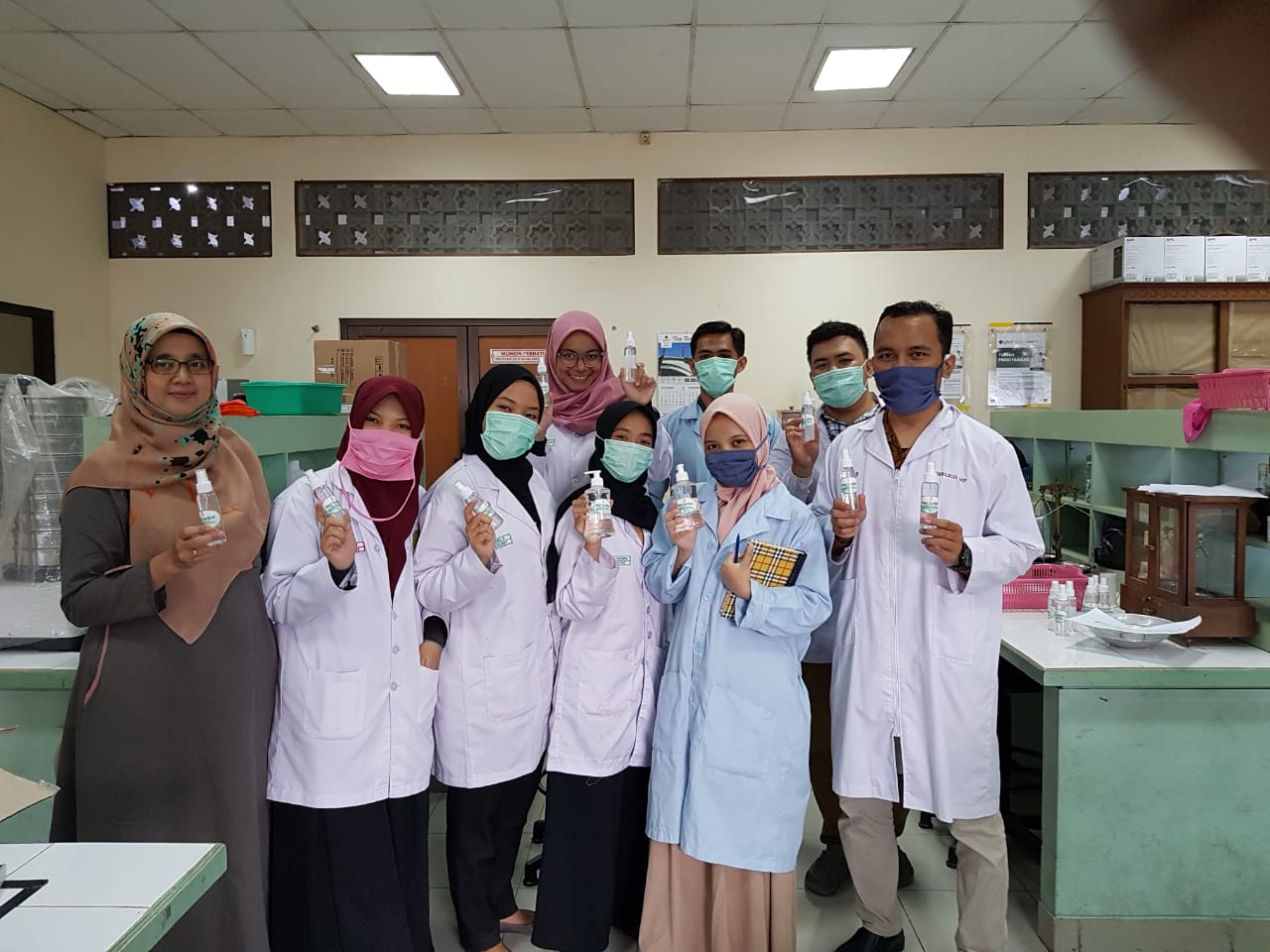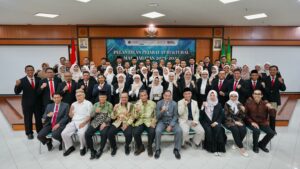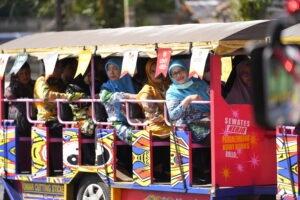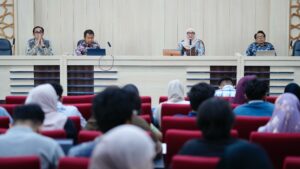
The COVID-19 pandemic outbreak is a serious epidemic that must be faced by the people of Indonesia. This outbreak has led to a scarcity of hand sanitizers and masks for the people of Indonesia, especially among the academic community. Therefore, Universitas Muhammadiyah Yogyakarta (UMY) as campus that prioritizes its academic body’s health responded to the scarcity of hand sanitizers by producing their own hand sanitizers in accordance with the needs of UMY’s academic community.
Dr. Suryo Pratolo, M.Sc., Ak., CA., AAP-A., the UMY Vice-Rector for Financial Resources, when contacted on Sunday (22/3) stated that the production of hand sanitizers was carried out as a preventive measure in the face of the COVID-19 pandemic. “The production of hand sanitizers is a form of preventive measures for the COVID-19 pandemic. The hand sanitizers will be distributed internally according to the needs of UMY academicians,” he explained.
Suryo also added that the distribution of hand sanitizers will not only be done during the COVID-19 outbreak but will also be continued the following year to maintain cleanliness and health in the campus environment. “This distribution will not stop after the pandemic outbreak, but it will be enacted the following year as well so that the academics of UMY always maintain their hygiene and health in UMY,” he added.
Furthermore, Sabtanti Harimurti, Ph.D, Apt, Head of the Pharmacy Study Program of UMY Medicinal and Health Sciences (FKIK) UMY stated that the creation of hand sanitizers has been carried out since the start of the COVID-19 outbreak in Indonesia, precisely about two weeks ago when the Yogyakarta and Solo regions had stated cases of COVID-19. “The background of this project is UMY’s desire to help in reducing the transmission of COVID-19 at the UMY campus. The original plan was just to make the products for FKIK study programs, but it turns out that all study programs needed support, so we made more for the entire UMY community. We are aware that the outbreak of COVID-19 is very serious. We will try our best to help reduce its spread. Our responsibility as health workers at UMY made us feel obliged to contribute to maintaining public health, especially in UMY. We are very happy that our formula was well received by UMY and we hope that UMY will be free from COVID-19,” she explained.
Sabtanti also said that the main ingredient used to make hand sanitizers was alcohol. “The main ingredient for manufacturing is alcohol, fortified with other ingredients as humectants or softeners so that our hands do not become rough or dry. Next, we added aromatherapy oil to mask the smell of alcohol. The most important thing in making this product is the concentration of alcohol in the hand sanitizer. A journal review published in January 2020 by German researchers states that alcohol levels must be between 62 -71 percent to be able to deactivate microbes in 1 minute. Precise calculations need to be done to get the formula right, this is because the raw material for alcohol used variations of 98 percent, 96 percent or 95 percent. So before the product is made, the alcohol concentration must be calculated properly so that the concentration is right using the dilution formula,” she explained.
“Our production capacity is 40-50 liters per day. This is because of the limited production sites and equipment that are not designed for mass production, but for student learning. So far, production has been carried out in pharmaceutical technology laboratories, and our hand sanitizers are currently only made for UMY’s needs. Circulating or trading out the hand sanitizers require a marketing authorization issued by the Ministry of Health. Currently, the management is carried out by PT UMB, and until now it has only been used to meet health protocol standards in the face of the COVID-19 outbreak at UMY. In the future, We hope that a distribution permit can be obtained and PT UMB can distribute it outside of UMY. And this will be an achievement because it is evidence of a realization of Pharmacy Study Program research products. The hand sanitizers that we produce has passed the stability and acceptability tests as well as the antimicrobial (E. coli) test. The inhibitory test results prove that hand sanitizers are made equivalent to the positive control of hand sanitizers sold on the market. In addition, it has a better ability to neutralize bacteria compared to the hand sanitizers on the market that was used as a comparison,” she said.
The same effort was done at the Faculty of Agriculture, as the Agrotechnology Study Program also took the initiative to produce their own hand sanitizers. This was stated by Dr. Innaka Ageng Rineksane, SP., MP., Head of UMY’s Agrotechnology Study Program who stated that the hand sanitizers has been made since the outbreak of COVID-19, precisely on March 13, 2020. “We started producing after a proposal from an Agrotechnology lecturer to make hand sanitaizers for their own circles was issued, and there was support from the dean. We collaborated with the Agriculture Training Center (ATC) and alumnis of the Agrotechnology study program, and the results of this production are used free of charge by all lecturers, students, and temporary staff,” she concluded. (Sofia)






